Anger, nudity and Who's Afraid of Virginia Woolf?

‘Would you ask a male actor that?” says Imogen Poots, peering at me suspiciously. I’ve just asked when she realised her looks opened up the board for her in terms of roles. I would, I say – Steve Buscemi is a great actor but he didn’t get to play that many romantic leads. “But he works with Jim Jarmusch all the time,” she responds, “and that’s what every actor wants!”
Poots may not have worked with the celebrated indie director yet but she’s certainly been busy over the past few years, since she made a splash as a teenager enjoying a one-night stand with sexagenarian Michael Douglas in Solitary Man (2009) and was the apple of daddy’s eye in the 2010 ITV remake of Bouquet of Barbed Wire. She went on to play porn baron Paul Raymond’s daughter in The Look of Love in 2013 and an endearing would-be suicide in the Nick Hornby adaptation A Long Way Down the folllowing year.
Since then, she’s mixed critically acclaimed films, such as last year’s violent thriller Green Room, with blockbusters like Need for Speed (2014), and worked with another director that every actor would kill to be cast by, Terrence Malick, on his 2015 film Knight of Cups.
That was “wonderful but mad”, she says, recalling the day she thought to ask Malick where her character was from. “He said, ‘Oh well, she’s essentially like smoke; she’s from nowhere and, uh, everywhere’, and I said, ‘Right, OK, great…’.”
Now, at 27, Poots is taking on a play – her first – Edward Albee’s Who’s Afraid of Virginia Woolf?, in which Imelda Staunton and Conleth Hill will take the viciously duelling husband and wife roles made famous by Richard Burton and Elizabeth Taylor in the 1966 film. Poots is playing Honey, the seemingly timid wife of Luke Treadaway’s biology professor. Described as “a mousey little type with no hips”, she’s a mostly passive counterpoint to the abusive leads.
Is she planning to dowdy-down for the role? “I think I’m probably already in prime position,” she laughs. “I always think of that lyric” – she hiss-sings the opening to the Pixies’ song Tame – “hips like Cinderella”. She was nervous on the first day of rehearsals, she confesses, and felt compelled to tell the other cast members that she hadn’t acted on stage before, “in case they wanted to just throw me out of a window and find themselves a replacement”.
Born in west London, Poots lives in New York these days, but her line in self-directed irony is altogether British. She’s unaffected, with a goofy charm that makes her very likeable; she’s also an Emerson-quoting, political, and very sincere thinker. She doesn’t seem the passive, silent type: “I’m a mouse in that rehearsal room,” she says. “One of the best things about growing up is that you learn to shut up, don’t you?”
She’s sitting across from me in an east London café, yards from where she’s been rehearsing. Her hair is long and less blonde than it often appears on screen, with a short, punky fringe. She’s wearing several unusual silver rings. On the first and index fingers of her left hand are the tattooed letters “A”, “Y”. They’re “for a friend who died”, she says, without mentioning the name of actor Anton Yelchin – with whom she starred in the horror remake Fright Night and Green Room. He was killed last year in a freak accident when his SUV rolled back and trapped him against gates at his home. “I don’t have any other tattoos,” she says, “but my friends and I just decided to get it done, because then they travel with you.”
Poots made a short-lived move to LA after shooting Fright Night in New Mexico in 2010 but left after her shared apartment was damaged by a fire in a cat-loving neighbour’s flat. “I didn’t have anywhere to live for a while but then I moved to New York and I’ve been so happy there.”
She left the West Coast untouched by the superficiality often attributed to Los Angeles – “I feel quite happy to say my hair didn’t get any more shiny” – although a number of roles that followed came via people she had met while there. New York, she says, feels like “the place where I can organise my bones”. It had been the right time to leave the UK, she adds, despite the fact she had just completed a role in Cary Fukunaga’s acclaimed Jane Eyre (2010) and appeared alongside “lovely Matt Smith”, as a Weimar Berlin cabaret singer in the BBC drama Christopher and His Kind. But Poots had reached a point when all she was being offered was “bonnets and period dramas” and admits “there wasn’t anything here I was crazy about.”
Honey is a role entrenched in a particular period, she notes (the play was written in 1962), when being “feminine” was seen as an achievement in itself. “It’s not so far away from the confines of what a woman is supposed to be now,” she adds – “the obsession with being thin, not taking up too much space, and your voice getting higher when you speak to men. It still exists, it’s very pervasive.”
Her upbringing gave her the tools to feel strong and secure, she says. “I’m a white, middle-class girl who grew up in a lovely part of London and had very supportive parents.” Her mother was a journalist, her father a television producer, the family home was in Chiswick. She has an older brother, Alex, who’s a striking looking model. Books were an important part of her childhood but, she says, “I wasn’t given William Faulkner by my dad when I was eight, my parents are not like that at all” – nor was she exposed to the TV industry through her father’s work. “I remember being outside a lot, having the chance to daydream.”
She had planned to be a vet but became interested in acting as a teenager, when she started going to the Youngblood Theatre Company in Hammersmith (which Carey Mulligan also attended) and, aged 15, landed a part in the film that launched a million anarchist masks, V for Vendetta (2005), followed, at 17, by a major role in the cult zombie horror sequel 28 Weeks Later (2007).
After getting three ‘A’s in her A-levels, she got a place to study History of Art at the Courtauld in London but put it on hold to concentrate on acting. She never went to drama school – “I don’t think I’ve done myself a great disservice by not doing it”– but says she has made a great effort to educate herself.
I ask her about working in an adult world from a young age – has it made her grow up faster? “It’s kind of dazzling,” she says, “and you can ride on being charming and somewhat wide-eyed about things. Sometimes I feel like an absolute stunted girl-woman and sometimes I feel like, I got this.”
She talks about the excitement of working with great actors – she says she will always remember the read-through for the Beethoven-loving tragi-romance A Late Quartet (2012). “Philip Seymour Hoffman was reading from the script, sitting at that table in that very sterile room with a bunch of strangers, but he just lived it, he became somebody else.”
Has she ever felt vulnerable, being around the powerful people who inhabit the movie business? “Of course. I still do, every day. I don’t think that’s ameliorated by how much you’ve done or who you’ve been around.”
Protecting yourself as a young actor is made harder, she says, “because you have to be emotionally available, but at the same time you want to be impervious to the bullshit if people have other agendas professionally or anything else. It’s a balance that takes a while to figure out.”
That balance is particularly relevant when it comes to nude scenes. “The first time I did nudity which wasn’t sheet up to here [she pulls an imaginary bed sheet up to her breastbone] was on Frank & Lola” – Matthew Ross’s drama about an obsessive romance, released in December in the US – “and that was a very conscious decision because it was a director I’d learnt to trust, and it made sense for the opening of that film, so I didn’t question whether I should have a bra on or not.”
But, she adds, “I also think it’s really, really terrible for any young actress to feel pressured to do that. I’ve been in plenty of situations where a producer has said, ‘Oh yeah, we were thinking it would be important to have this sex scene here, it’ll only take half an hour,’ and you just go ‘no’, and get prepared to walk off the set. I have no qualms about turning on someone and telling them to f— off, basically.”
We talk about the way that anger and other violent emotions are vocalised in Who’s Afraid of Virginia Woolf?, where the gladiatorial combat between the ferocious Martha and her husband George sees him imagining her “buried in cement”, while she labels all men “flops”.
I ask Poots if she finds it easy to express extreme emotions herself: “I have moments of total madness,” she says, “and then you can surprise yourself by how coolly you’re handling something.” Sometimes, it’s good to express anger, she adds. “Petulance is a brash, arbitrary choice, but I think anger is important because it’s the catalyst for things to happen.”

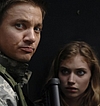





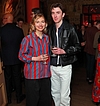
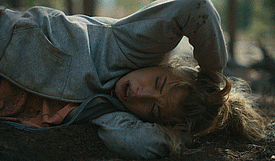
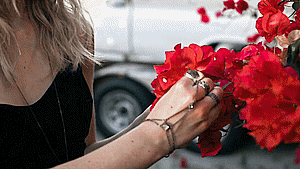




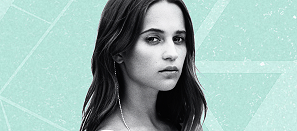






Recent Comments